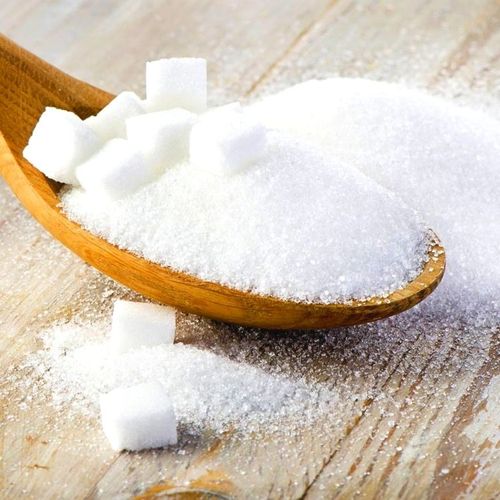We all know that it's not good for our health to consume too much sugar. Excessive amounts of sugar in the diet are widely known to cause weight gain. But that's only part of the story.
Both table sugar and high-fructose corn syrup (HFCS) contain fructose, which recent research has shown can increase the risk for diabetes, fatty liver disease, high blood pressure and chronic kidney disease when consumed in excessive amounts. Currently, most Americans consume way too much added sugar in their daily diets, putting them at risk for all these diseases.
What's the Trouble with Fructose?
Fructose is a simple sugar. It is found naturally in honey, fruits and some vegetables. But a typical fruit contains only about 8 g of fructose, compared to about 20 g in a sugary soda. Unlike soda, fruits and vegetables contain nutrients and antioxidants that are beneficial to health.
The two main sources of fructose in the American diet are table sugar (which is squeezed from beet and cane plants) and HFCS (which is processed using enzymes that tum com starch into glucose and fructose). Table sugar and HFCS are almost identical in their chemical composition-and both, consumed in excess, can contribute to health problems.
But few Americans are aware of just how much added sugar they are getting in their diets. That's because many added sugars are often listed as ingredients that are not recognizable as sugar and are found in unexpected food sources (see next page for a list of these terms). For example, added sugar is found in not only obvious places like soft drinks and other sweet beverages, but also in great abundance in many salad dressings, condiments (such as ketchup), cereals, crackers and even bread.
Emerging Research On Fructose
While there are many studies being conducted on different types of added sugars, there is important research that now focuses on various forms of fructose. For example, recent research suggests that fructose is harmful because it increases levels of uric acid, a naturally occurring acid found in the urine. In crystalline form, uric acid can deposit in the joints and lead to gout.
Eating foods rich in a compound called purines (found in foods such as anchovies, beer, brewer's yeast supplements, clams, goose, gravy, herring, lobster, mackerel, meat extract, mincemeat, mussels, organ meats, oysters, sardines, scallops and shrimp) can also produce high levels of uric acid.
Smart Ways To Limit Sugar
It's important to remove added sugar from your diet-with a special focus on fructose due to its unique potential risks that are now being discovered in new research.
To minimize the health risks associated with added sugars, try these steps...
• Beware of "hidden" sugar. When buying processed foods, remember that added sugars can appear on food labels in various ways. (See various names for sugar at the end of this article.)
• Avoid any prepared or processed product that does not provide an ingredient list.
• Don't eat more than four fruits daily. Even the naturally occurring fructose found in fruit counts toward your total daily intake of fructose. It's also important to limit your intake of fruit juice, which has been stripped of the nutritious fiber present in whole fruit and often contains added sugar.
• Limit fructose intake to 25 g to 35 g per day. Consuming more than that amount could trigger the physiological changes that may lead to disease.
To learn the fructose content of specific foods, go to the USDA Food Database at www.nal.usda.gov/fnic/foodcomp/search.
• Take nutritional supplements. Limiting fruit in your diet may lower your levels of important nutrients. To replace them, take a multivitamin plus an additional 250 mg of vitamin c daily.
• Be cautious when eating in restaurants. Limit restaurant meals and takeout food to menu items for which you know the ingredients.
• Be prepared for sugar withdrawal. In rare cases, you may develop withdrawal symptoms from sugar and fructose, such as headache, fatigue and an intense craving for sweets.
To help ease these symptoms, be sure to drink plenty of water (five to eight cups daily).
Sugar Aliases
Take this list to the supermarket with you to help you identify the various terms for added sugars...
• Beet sugar
• Brown sugar
• Cane sugar
• Corn sweetener
• Corn syrup
• Demerara sugar
• Fruit juice concentrate
• Granulated sugar
• High-fructose corn syrup
• Honey
• Invert sugar
• Maple syrup
• Molasses
• Muscovado sugar
• Raw sugar
• Sucrose
• Syrup
• Table sugar
• Tagatose
• Turbinado sugar
